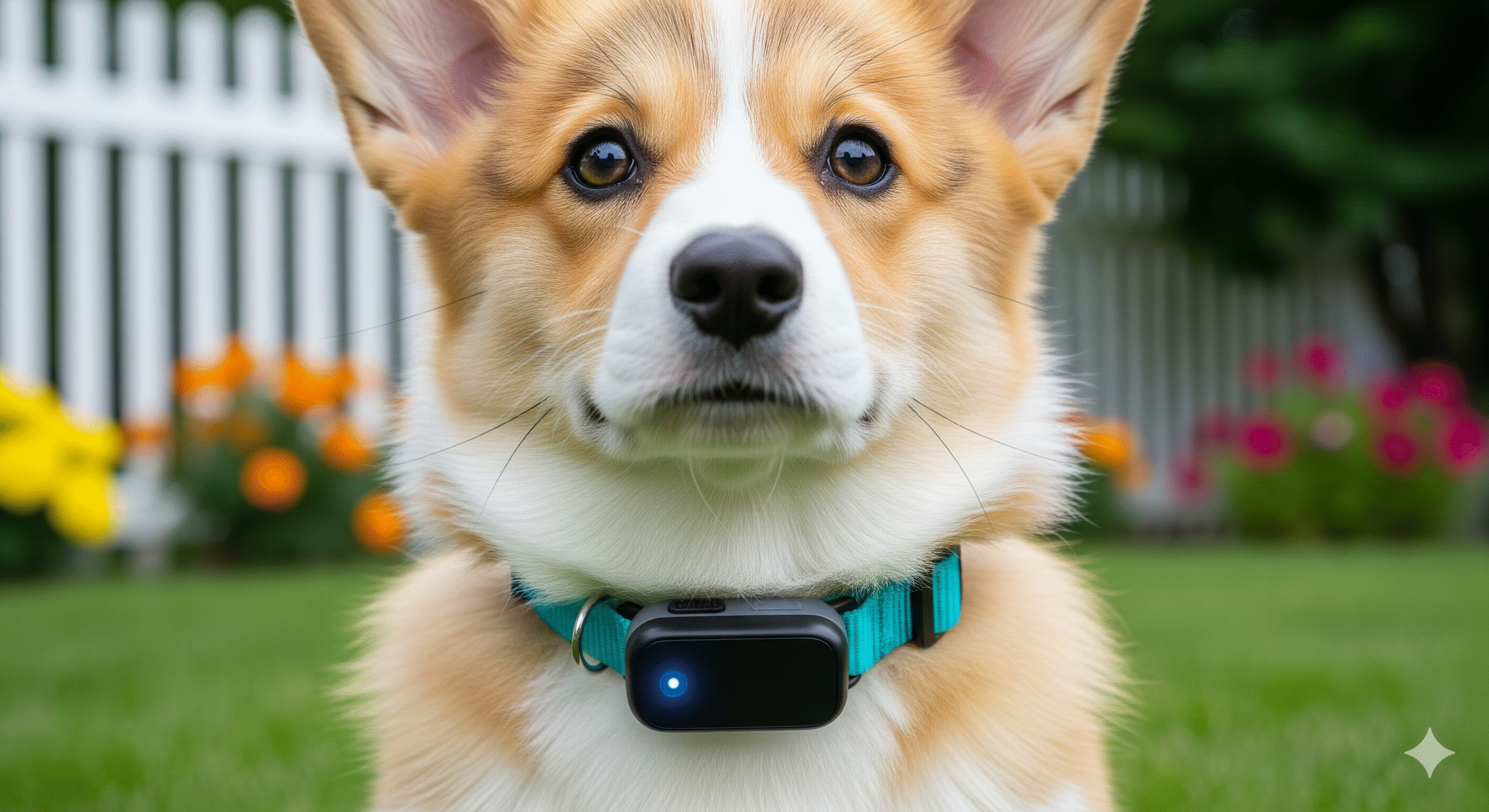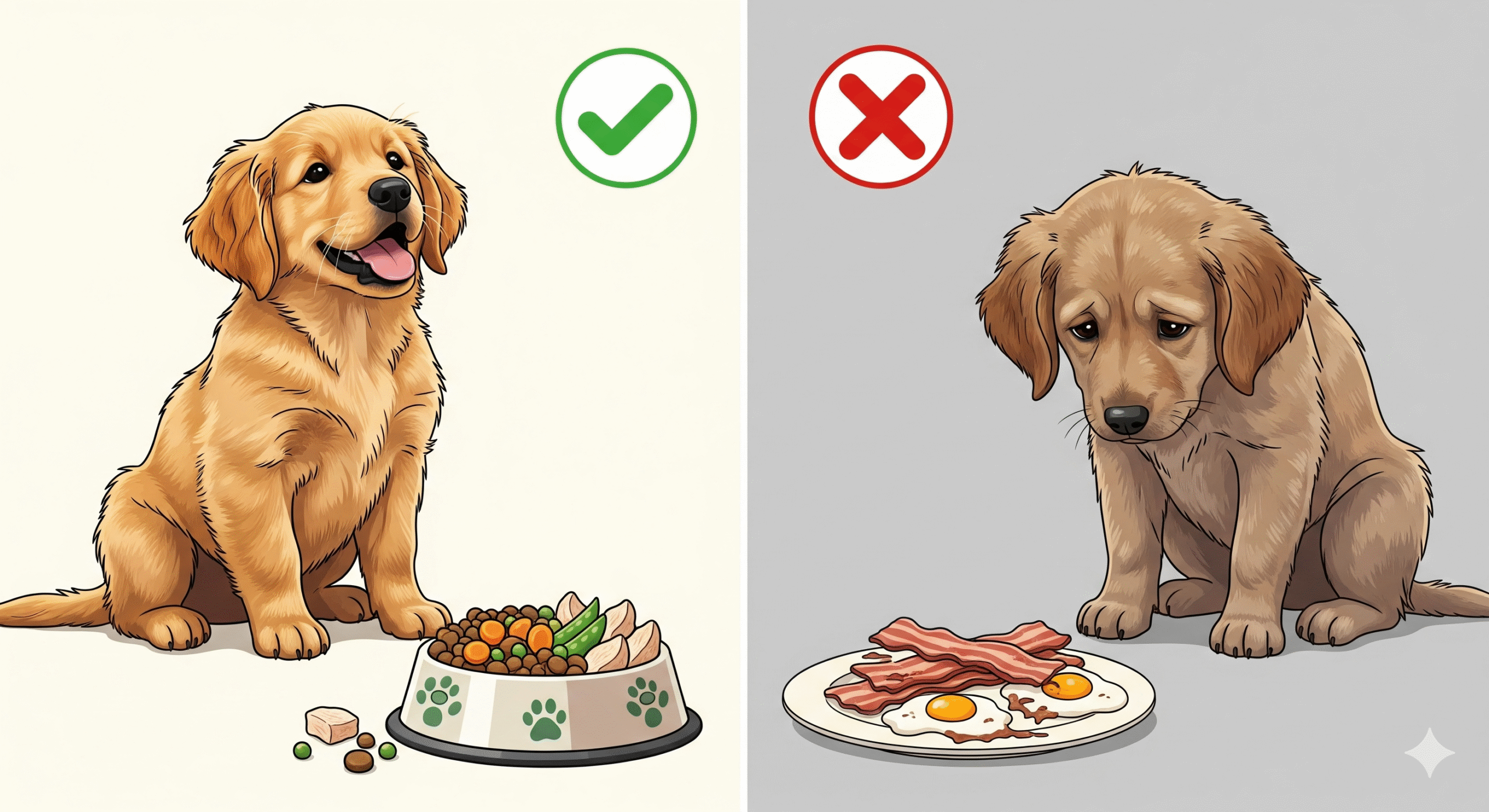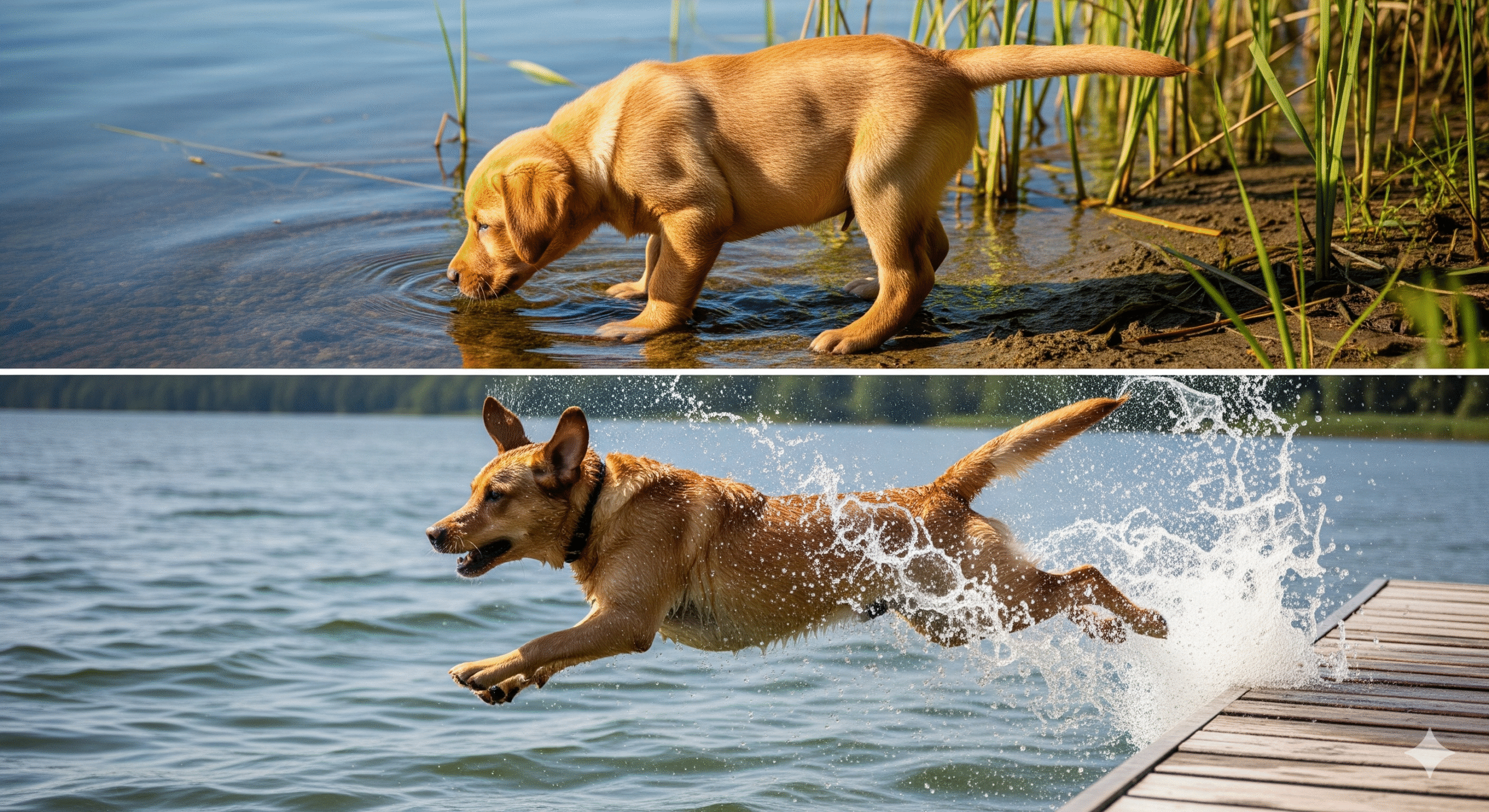Bringing a new puppy into your life is an unparalleled joy. It’s a flurry of fluffy cuddles, tiny yaps, and boundless, chaotic energy. As a new pet parent, you’re focused on providing the best food, the comfiest bed, and all the love they can handle. But alongside that joy comes a healthy dose of worry. Puppies are masters of mischief and escape artists in training. A door left ajar for a split second, a moment of distraction at the park, or a surprising burst of speed on a walk can lead to a heart-stopping moment of panic.
In our tech-driven world, a solution has emerged that promises peace of mind: the GPS tracker for a puppy. These small devices attach to your dog’s collar and offer real-time location tracking straight to your smartphone. But are they a necessary piece of high-tech gear for every puppy owner, or an over-the-top gadget? Is a microchip enough? This comprehensive guide will explore the ins and outs of GPS trackers for puppies, weighing the pros and cons, examining key features, and helping you decide if this technology is the right investment for you and your curious canine companion. Let’s dig into the details and find out if a GPS tracker is the key to keeping your adventurous pup safe and sound.
What is a Puppy GPS Tracker and How Does It Work? 🤔
It’s easy to confuse a GPS tracker with a microchip, but they serve entirely different purposes. Understanding the technology is the first step in making an informed decision.
Microchip vs. GPS Tracker: A Critical Distinction
Many new owners believe a microchip can help them find a lost pet, but that’s a common misconception.
- Microchip: A microchip is a tiny, passive radio-frequency identification (RFID) transponder, about the size of a grain of rice. It’s implanted under your puppy’s skin by a vet. It holds a unique ID number that, when scanned by a vet or shelter, can be used to look up your contact information in a database. A microchip cannot actively track your pet’s location. It only works if your lost puppy is found by someone and taken to be scanned.
- GPS Tracker: A GPS tracker for a puppy is an active, battery-powered device that attaches to their collar. It uses the Global Positioning System (GPS) to pinpoint your puppy’s real-time location. This information is then transmitted via cellular data to an app on your smartphone, allowing you to see their exact position on a map at any moment. Think of it like the navigation system in your car, but for your furry friend.
The Technology Behind the Track
Most pet GPS trackers use a combination of technologies to provide the most accurate location data possible. They typically rely on:
- GPS Satellites: For precise outdoor location tracking.
- Cellular Networks: To send that location data from the device to your phone. This is why most trackers require a monthly or annual subscription plan, similar to a cell phone.
- Wi-Fi & Bluetooth: For accurate indoor location tracking and to establish “safe zones,” like your home. When the tracker detects your home Wi-Fi, it knows your puppy is safe and can enter a power-saving mode.
The Pros: Why a GPS Tracker Can Be a Lifesaver ✅
For many puppy owners, the benefits of a GPS tracker offer invaluable peace of mind that far outweighs the cost.
Real-Time Location Tracking
This is the number one reason to get a gps tracker for your puppy. If your pup bolts out the front door or slips their leash, you don’t have to wait and hope someone finds them. You can immediately open an app and see their location, turning a potential tragedy into a brief, manageable incident. This is especially crucial during the “puppy stage” when recall training is still a work in progress.
Geo-Fencing and Safe Zone Alerts
Most trackers allow you to create virtual “safe zones” or “geo-fences” around your home and yard. If your puppy crosses this virtual boundary, you receive an instant alert on your phone. This proactive notification gives you a critical head start in recovering them before they can wander too far. It’s like a digital leash that alerts you the moment they step out of bounds.
Activity and Health Monitoring
Modern pet trackers are more than just location devices. Many now include sophisticated activity monitoring features, much like a human fitness tracker. They can track:
- Active vs. Rest Minutes: See how much exercise your puppy is getting each day.
- Calorie Burn: Help manage your puppy’s diet and prevent obesity.
- Sleep Quality: Monitor sleep patterns for potential signs of discomfort or illness.
- Licking/Scratching: Some advanced models can even track behaviors like excessive licking or scratching, which could be early indicators of skin issues or allergies.
This data provides valuable insights into your puppy’s overall well-being and can help you and your vet make more informed health decisions.
The Cons: Potential Downsides to Consider ❌
While the benefits are compelling, GPS trackers aren’t without their drawbacks. It’s important to consider these factors before making a purchase.
<h3>H3: Cost: The Initial Purchase and Ongoing Subscription</h3>
GPS trackers involve two costs: the initial price of the device itself (which can range from $50 to $150) and the ongoing subscription fee for the cellular data plan (typically $5 to $15 per month). While not exorbitant, this recurring cost is a financial commitment that adds up over time.
Size, Weight, and Battery Life
Puppies are small, and even the most compact GPS tracker can be bulky on a tiny teacup or toy breed. It’s crucial to choose a model that is lightweight and appropriately sized so it doesn’t bother your pup or pose a choking hazard. Furthermore, these devices need to be charged regularly. Battery life can range from a few days to a few weeks, depending on the model and usage. You must be diligent about keeping the device charged for it to be effective when you need it most.
Reliance on Cellular Coverage
Since the tracker uses cellular networks to transmit its location, it won’t work in areas with no cell service. If you live in or frequently visit rural or remote areas for hiking or camping, you must check the tracker’s coverage map to ensure it will be reliable where you need it.
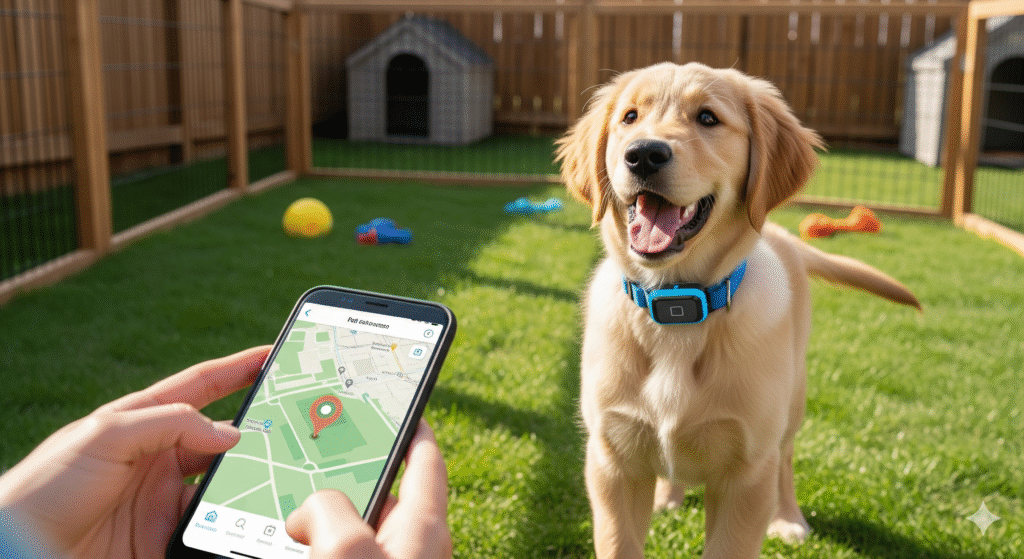
Making the Right Choice: Key Features to Look For 🌟
If you’ve decided a gps tracker for your puppy is a good fit, here are the essential features to compare when shopping.
- Size and Weight: This is paramount for a puppy. Look for the lightest, smallest device that meets your needs. Check the manufacturer’s weight recommendations.
- Battery Life: Longer is always better. Look for real-world reviews on battery performance, not just the manufacturer’s claims.
- Durability and Waterproofing: Puppies play rough. They roll in mud, splash in puddles, and chew on everything. A durable, waterproof (not just water-resistant) tracker with a high IP rating (like IP67 or higher) is essential.
- Tracking Accuracy and Speed: Look for trackers that use multiple satellite systems (GPS, GLONASS, Galileo) for the most precise location data. The refresh rate (how often the location updates in “live” mode) should be every few seconds.
- App Features: The user-friendliness of the companion app is crucial. Does it offer reliable geo-fencing, location history, activity monitoring, and easy-to-understand controls?
Conclusion: An Investment in Peace of Mind
So, do you need a GPS tracker for your puppy? The answer depends on your puppy’s personality, your environment, and your personal level of anxiety. For the escape-artist hound, the curious adventurer, or the owner who lives near a busy street, a GPS tracker can be an indispensable tool for safety and security. The ability to instantly locate a lost pet provides a level of reassurance that a microchip alone simply cannot offer.
While there are costs and responsibilities involved—like charging the battery and paying a subscription—many pet parents find that the peace of mind is well worth the investment. It’s a modern solution to an age-old fear. By weighing the pros and cons and choosing a device with the right features for your tiny companion, you can add a powerful layer of protection, ensuring many years of safe and happy adventures together.
Do you use a GPS tracker for your dog? Share your experience or ask your questions in the comments below! 👇
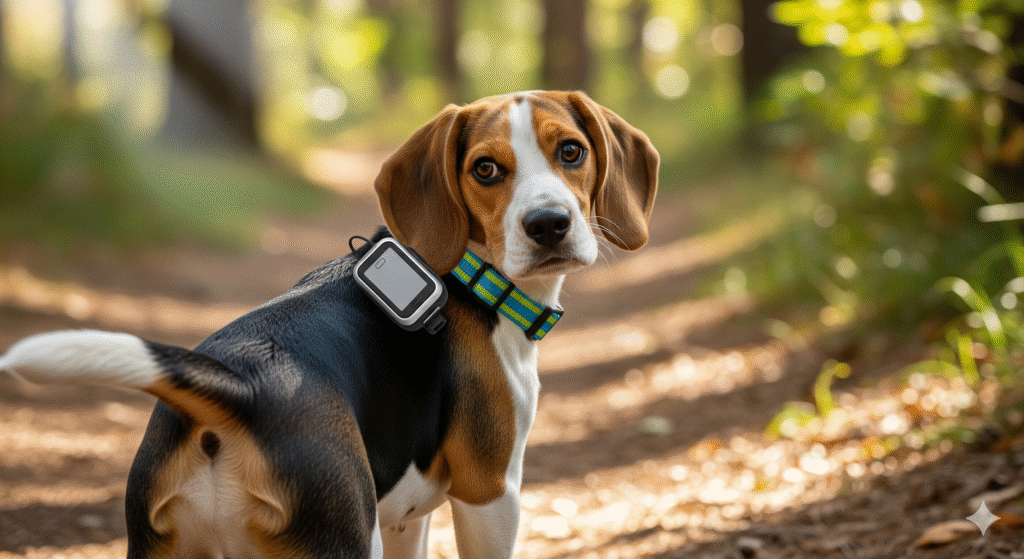
Ready for peace of mind? Check out our detailed guide to the best puppy cameras to monitor your dog to find the perfect model for your home.

